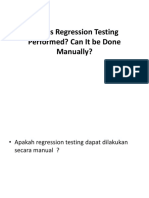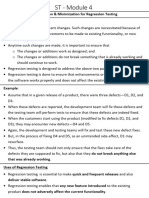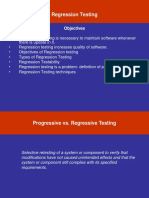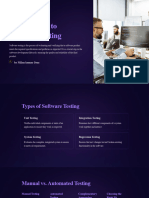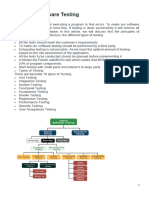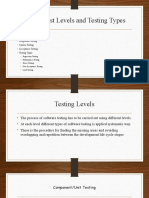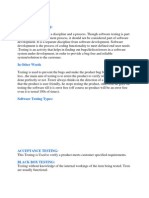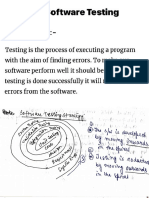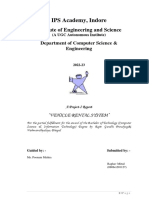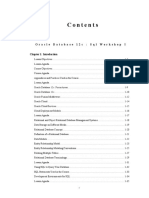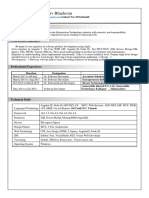0% found this document useful (0 votes)
21 views2 pagesApplications of Regression Testing
Regression testing is used to ensure that changes or updates to software systems do not introduce new defects or negatively impact existing functionality. There are several common applications of regression testing, including validating code modifications, feature enhancements, integration of modules, data changes, environment changes, performance optimization, compliance with security updates, and integration into continuous integration/continuous deployment pipelines. Regression testing plays an important role in maintaining the overall reliability and quality of software.
Uploaded by
gskc27Copyright
© © All Rights Reserved
We take content rights seriously. If you suspect this is your content, claim it here.
Available Formats
Download as PDF, TXT or read online on Scribd
0% found this document useful (0 votes)
21 views2 pagesApplications of Regression Testing
Regression testing is used to ensure that changes or updates to software systems do not introduce new defects or negatively impact existing functionality. There are several common applications of regression testing, including validating code modifications, feature enhancements, integration of modules, data changes, environment changes, performance optimization, compliance with security updates, and integration into continuous integration/continuous deployment pipelines. Regression testing plays an important role in maintaining the overall reliability and quality of software.
Uploaded by
gskc27Copyright
© © All Rights Reserved
We take content rights seriously. If you suspect this is your content, claim it here.
Available Formats
Download as PDF, TXT or read online on Scribd
/ 2






